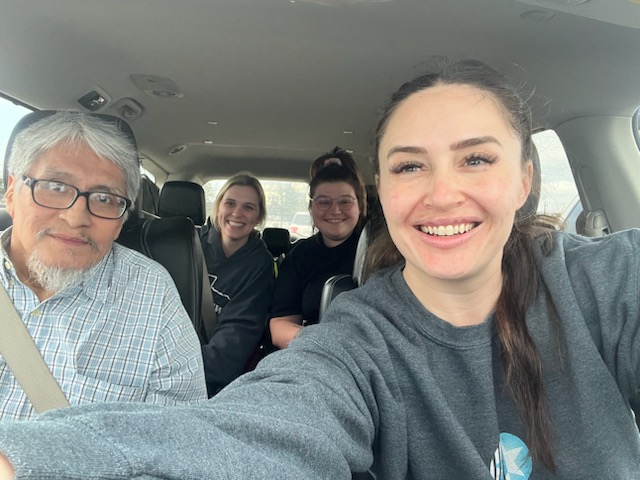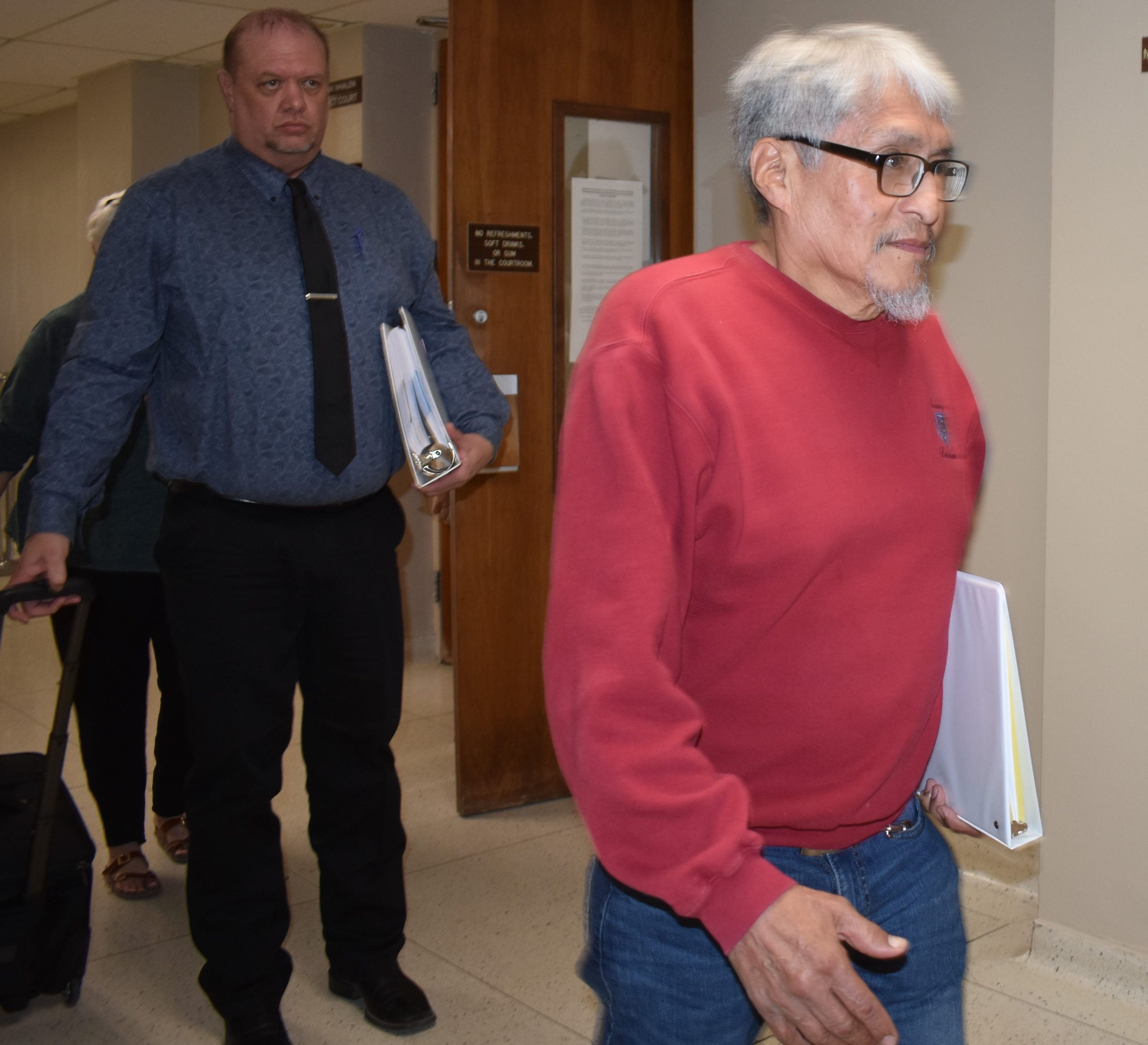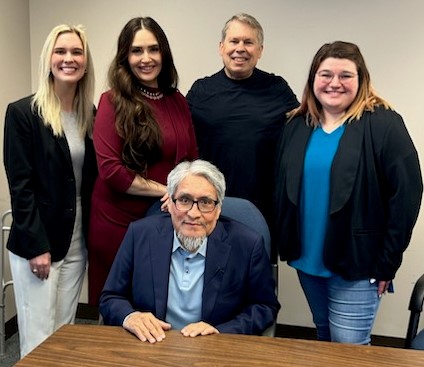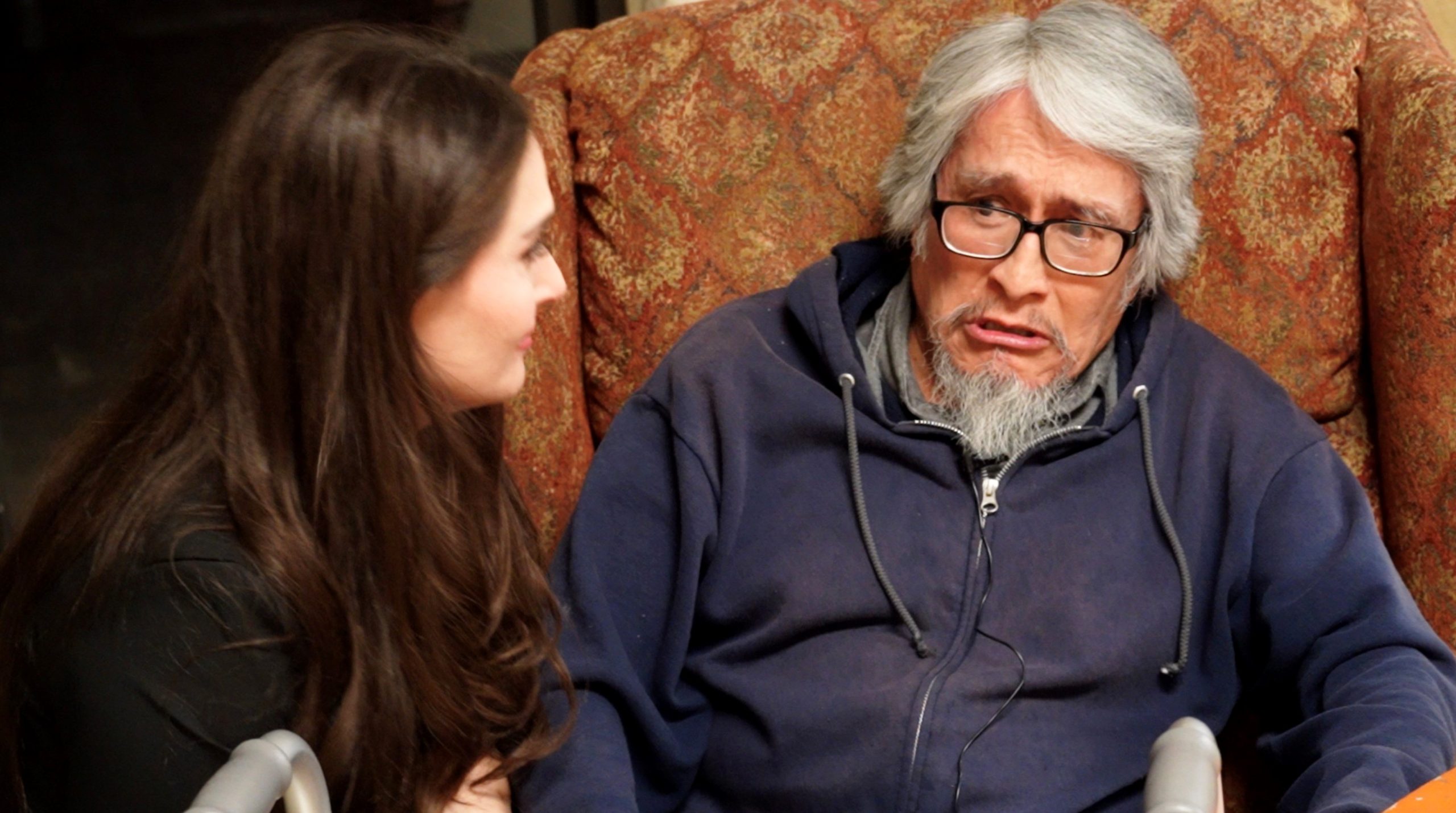
While the reality still hasn’t sunk in quite yet, James Reyos is already looking to the future. It’s a future in which he wants to help others who, like him, were wrongly convicted of a crime and sent to prison.
On Wednesday, the Texas Court of Criminal Appeals declared Reyos innocent of the 1981 murder of Father Patrick Ryan, a murder he spent 20 years in prison for.
Reyos, 66, was convicted of beating Ryan, 49, to death at the Sage and Sand Motel in Odessa by an Ector County jury in June 1983 and sentenced to 38 years in prison. He served two decades before being paroled.
In March, attorneys from the Innocence Project of Texas put witness after witness on the stand in Ector County District Court Denn Whalen’s courtroom. Each one testified there is absolutely no way Reyos could be responsible for the Dec. 21, 1981, death of the Denver City priest.
More over, they said, recently discovered fingerprints link three dead men to the murder.
After weighing that evidence, Whalen recommended in August the conviction be set aside in a 57-page document called Findings of Fact and Conclusions of Law.
“It’s still sinking in,” Reyos said Thursday morning in a telephone interview. “But, I’m very elated and so happy this day has finally come. It’s a long-time overdue, but I had patience.”
He can now move on, finally free of the false accusations against him, Reyos said.
“Today’s a very joyous day for me,” Reyos said, noting it’s also a joyous day for everyone who worked so hard to prove his innocence.

Legally, there are a few other things that need to happen, Reyos’ attorney, Allison Clayton said.
The Ector County District Attorney’s Office needs to file a motion to dismiss the indictment against him stating his innocence and within 10 days of that filing, a hearing on the matter will have to be scheduled, Clayton said. Whalen will then have to sign an order dismissing it.
Since prosecutors and the judge have already made their opinions known, that won’t be an issue, she said.
Once that order is signed, the law requires the state to pay Reyos a lump sum of roughly $2.2 million and $80,000 a year for the rest of his life, Clayton said.
Reyos said he plans to celebrate the court’s decision with a nice steak dinner.
As for the money?
“That was never tantamount for me, this has always been about getting justice. But, I plan to use the money to help others who are in the same boat I was, sent to prison after being wrongfully convicted,” Reyos said.
He intends to donate funds to the Innocence Project of Texas and the Innocence Project in his home state of New Mexico.
Following Whalen’s decision in August, Clayton said the high court could take years to render its decision.
“I was shocked, absolutely shocked,” when it came out so quickly, Clayton said.
While she’d like to think they made the decision because it was a “slam dunk,” she’s also realistic enough to know that all of the publicity about the case could have played an important role, too, Clayton said.
“Judges are politicians,” she said.

A documentary is in the works about the case, but it has received massive media attention since December 1991 when the prosecutor who represented the state during the appellate process came to the conclusion Reyos was innocent. That attorney, Dennis Cadra, sent a letter to then Gov. Ann Richards asking for Reyos’ conviction to be overturned. His widow, Yvonne, attended Friday’s hearing.
Cadra’s attempts to get the conviction overturned were unsuccessful, but his attempts started a snowball effect.
Ryan’s supervisor, a bishop, came out in support of Reyos, as did members of both the New Mexico and Texas Legislatures. Journalists from the Austin American-Statesman and Houston Chronicle wrote about the case. A book was published and A&E did a segment on Reyos. His plight was also featured on numerous podcasts.
Odessa Police Chief Michael Gerke testified in March his son, daughter-in-law and daughter came to him last year after listening to a podcast about Reyos’ case and asked detectives to pull the file.
After reading it, Gerke said he wondered where the rest of the file was because there wasn’t any evidence to support Reyos’ conviction. Not only was there no physical evidence linking Reyos to the crime scene or Odessa, there was actually evidence proving he was in New Mexico at the time of the murder.
Gerke asked detectives in his office to go over the file, too, and when they came to the same conclusion, they brought in the Ector County District Attorney’s Office.
According to court testimony, Reyos and Ryan were both living in Denver City in December 1981 when Ryan gave Reyos a ride to his impounded truck in Hobbs, N.M., on the morning of Dec. 21, 1981.
The next morning a maid found Ryan’s battered body, his arms tied behind his back, inside the motel room he’d rented under a false name using a false license plate number. A silver chalice and an accordion were missing from the room and never found.
The Ireland native’s stolen car was found at a Moose Lodge in Hobbs, N.M., and his wallet and a bloody credit card was found at a nearby gas station.
Eleven months later, a drunk and stoned Reyos, then 27, called Albuquerque police and confessed to having killed the priest, with whom he’d had a sexual encounter. He then recanted.
During the March hearing, John Smith testified he and his fellow defense attorney, John Cliff, were “shocked, infuriated and nonplussed” at the jury’s guilty verdict and sentence. He suspects they chose to convict Reyos because of his homosexuality, which they had tried unsuccessfully to keep out of the trial.
Also during the hearing, OPD’s Sgt. Scottie Smith reminded Whalen of the evidence Smith and Cliff presented at Reyos’ trial.
While it’s unclear from court transcripts exactly when Ryan died, they know he died between 5:30 p.m. and 11 p.m. Dec. 21, 1981, the sergeant testified.
Reyos has a confirmed alibi for 6 p.m. to 8:30 p.m. that night; he was in Roswell with a friend and at midnight he was receiving a ticket west of Roswell for speeding, Smith said.
Since it’s 3 hours and 20 minutes from Roswell to Odessa, there’s no way Reyos could have made it from Roswell to Odessa back to Roswell in that time frame, the sergeant said. An added wrinkle to the timeline is Reyos couldn’t drive two vehicles at once and Ryan’s car was found in Hobbs.
A former OPD fingerprint analyst, Stacy Cannady, said that although everyone believed all of the fingerprints lifted from the crime scene had been destroyed, she found 11 fingerprint cards and photos of six latent prints. Seven of the fingerprint cards could be entered into a FBI database that didn’t exist in the early ’80s.
Thanks to a combination of the new technology and old-fashioned eyeball comparisons, Cannady said she was able to determine that bloody prints found in the room belonged to three dead men.

Clayton said she strongly believes the men can be linked to the murders of seven other priests and members of the clergy in Texas, New Mexico and Arizona.
However, because Reyos has now been declared innocent she doesn’t believe she has the leverage necessary to get law enforcement agencies to dig further into her theory, Clayton said.
“We were just looking at essentially unsolved crimes that all have, I believe, very marked similarities,” she said.
It’s sad, none of the men will be brought to justice, but she’s beyond thrilled for Reyos.
“This is why we do this work. This work is so hard and it’s so demoralizing. We see the absolute best and worst of humanity, but it’s these kinds of victories that make it all worth it,” Clayton said. “It’s just such an honor to be able to fight for somebody like James and being able to get a favorable outcome for them, career-wise is what I live for. It’s just wonderful.”



